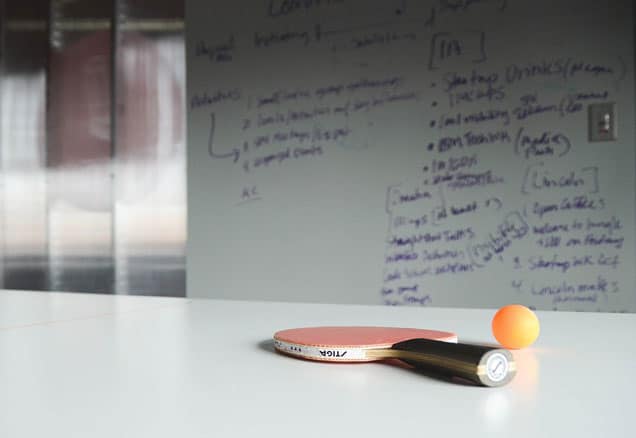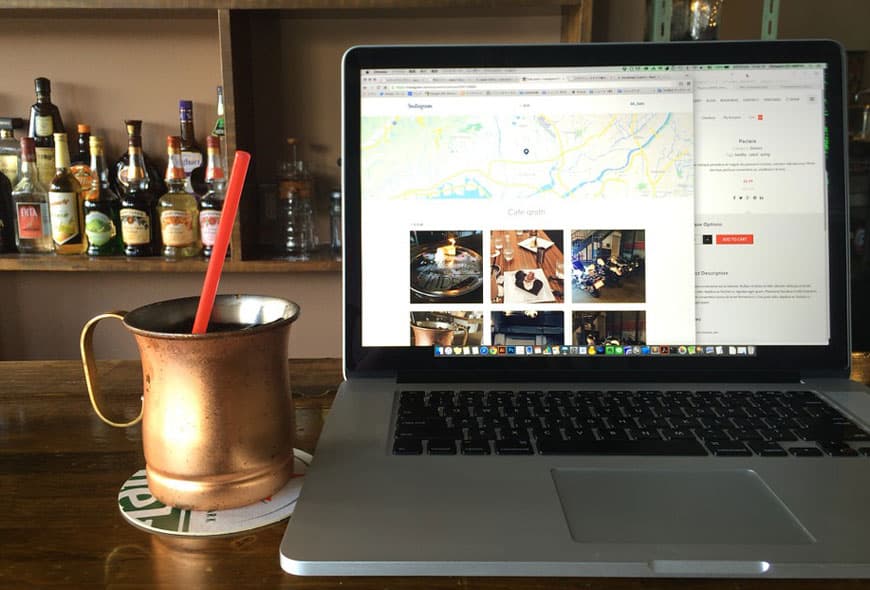Upgrade the Workplace with These Employee Perks
More and more companies are trying to create a better workplace by introducing a wide range of employee perks. Employee perks are used to make the workplace more attractive by providing all sorts of extras in addition to the normal salary package. As we are continuously learning from pioneering organizations on our search for happiness at work, we see lots of upcoming trends to enrich the workplace.
In this article we’ll share 8 trending employee perks that will surely make you jealous…or want to integrate into your own workplace.
1. Unlimited vacation time
“Unlimited vacation time you say? Yes, indeed!” It started as a revolutionary perk at various tech startups in Silicon Valley, but nowadays the trend spreads across various types of industries. In 2014, Richard Branson announced that Virgin introduced the unlimited holiday policy, or actually, removed the existing holiday policy altogether. Vacation time of employees is no longer registered, people take time off whenever they want and for whatever period they desire. As a result, the responsibility of taking time off is transferred from the organization towards the employee.
In reality, the result of this unlimited vacation policy is surprisingly successful. When given unlimited vacation time, people tend to use it responsibly. In fact, in some companies it works so well there is a surprising downside: people take too few days off. To make sure all employees actually take their time off some companies had to come up with extra measurements. They started to pay the employees to go on holiday. Can you believe that?! A remarkable example is FullContact. The CEO, Bart Lorang, announced that the company would pay a $7,500 vacation fee for their employees to enjoy a holiday. With one condition applied; employees cannot check their work email during vacation times. What a bummer…
2. Game rooms
A more well-known office perk is the game room. There are many reasons why companies start to install dedicated game rooms fully equipped with PlayStations, ping pong tables, and Foosball tables. It brings people together, fosters unusual interactions, fights stress, increases happiness, and helps to clear the mind. There is even a recent study suggesting that when people feel younger they achieve greater results. We suggest to start up the Foosball competition immediately!
3. Mens sana in corpore sano
To further promote a healthy lifestyle, companies are increasingly setting up novel facilities to increase the physical and mental health of their employees. Nowadays you can find a gym in almost every modern office, enabling employees to lift weights or run a few miles whenever they desire. It doesn’t only make the workplace more attractive, but it has proven to provide more additional benefits. Research shows “companies that instituted fitness programs experienced decreased absenteeism, lower turnover rates and reduced usage of sick leave, which saved money and increased productivity.”
In addition to physical health facilities, more companies start to focus on the state of the mental health of their employees. In a time where mindfulness, meditation and reflection are becoming more widespread, companies increasingly provide areas for their employees to do so. Meditation rooms, yoga classes and nap rooms are no longer exceptional perks anymore, but quickly cemented themselves as part of the office. A recent Huffington Post article describes seven reasons to implement some form of meditation at work.
4. Pick your own hours
The world around us has been changing a lot over the last few decades. To name a few: globalization has introduced the world to a 24 hour-economy and mothers in the workforce is steadily growing. These changes have a significant and active impact on our (working) life but still most companies demand us to work in a standard 9 to 5 way. A surprising amount of companies still prefer to use a time clock to register when employees arrive and leave again. This control-freak type of behavior is a left-over from the industrial age where it was very useful. Now, it’s not useful anymore and we definitely should get rid of it ASAP.
There are lots of organizations that start measuring productivity on results and not on time. Even governmental organizations have started doing it.
5. Work anywhere in the world
In a time in which technology enables us to work from almost anywhere in the world, remarkably few companies allow employees to work from the place they desire. During all the time spent at work we are mostly behind our computer answering emails or making telephone calls. However, much of this work can be done remotely as well.
Even though it’s still not very common, there is definitely a trend towards remote working. More traditional companies are starting to allow their employees to work from home. And more progressive organizations are even encouraging their employees to work from different places. It’s their belief that remote working increases both employee happiness and productivity.
An great example is Buffer, a company where everyone works remotely. The Buffer team is entirely spread across the globe. Recently, they even shut down the only office they had. Founder Joel Gascoigne reports that “in order to have deliberate face-to-face time together to bond and have fun, we have multiple Buffer retreats per year, where we gather the whole team in a single location.”
6. Passion projects
Google once attracted lots of attention by having their so-called “20% time” rule. With this rule, Google encouraged their employees, in addition to their normal projects, to focus 20% of their time on things that they think will benefit Google. This perk led to the development of products like Google News, AdSense, and even Gmail. Once other companies started to discover the results of Google’s “20% time,” they followed suit as well. Encouraging employees to develop personal projects on company time may lead to increased engagement and creativity. It seems to work well for Google…
7. Office spaces
Luckily, the boring cubicle days are almost over. The number of depressing and soulless office spaces filled with just desks and partitions is quickly reducing. Companies are changing the staunch work environment to something that is more colorful, warm, and inviting for people to work and connect.
As you can imagine, the design of an office has a direct effect on the culture of the company. Do you want people to easily connect or provide a feeling of a ‘flat organization’? Our advice: take down the walls immediately. But if you want to eliminate creativity, the cubicle might be perfect for you!
8. Bring your pet to work
Believe it or not, companies have begun to invite people to bring their pets to work. It is one of the more surprising employee perks which creates an atmosphere where people tend to feel more at home. However, having pets around does not just create a better atmosphere but also provides substantial health benefits to the workplace.
Various studies have shown that dog owners have a lower chance of suffering from depression as compared to ‘pet-less people’. Furthermore, having pets around lowers blood pressure, reduces stress hormones, and improves mood by releasing the brain’s feel-good chemicals dopamine and serotonin.
As companies are putting more focus on the happiness and health of their employees, more perks are being introduced. The best thing is that most employee perks offer a win-win situation for everyone. Employees benefits from increased freedom, comfort, happiness, and physical and mental health. And organizations benefit from higher productivity, less employee turnover, less illness, more engagement, and increased attractiveness for future employees.
All in all, there are enough reasons to start following these trends, welcome more employee perks, and help to reinvent the workplace!











